ResearchGPT is a ChatGPT-integrated tool created by the academic research and journal management startup SciSpace.
ResearchGPT essentially connects SciSpace’s immense database of 282 million academic articles to ChatGPT, enabling users to process academic literature with the GPT-4 model.
Designed for academic research, whether you’re a student, lecturer, professional academic, or publisher, ResearchGPT guides users to published papers and helps them navigate, understand, and analyze their content.
Here’s how it looks inside of ChatGPT:
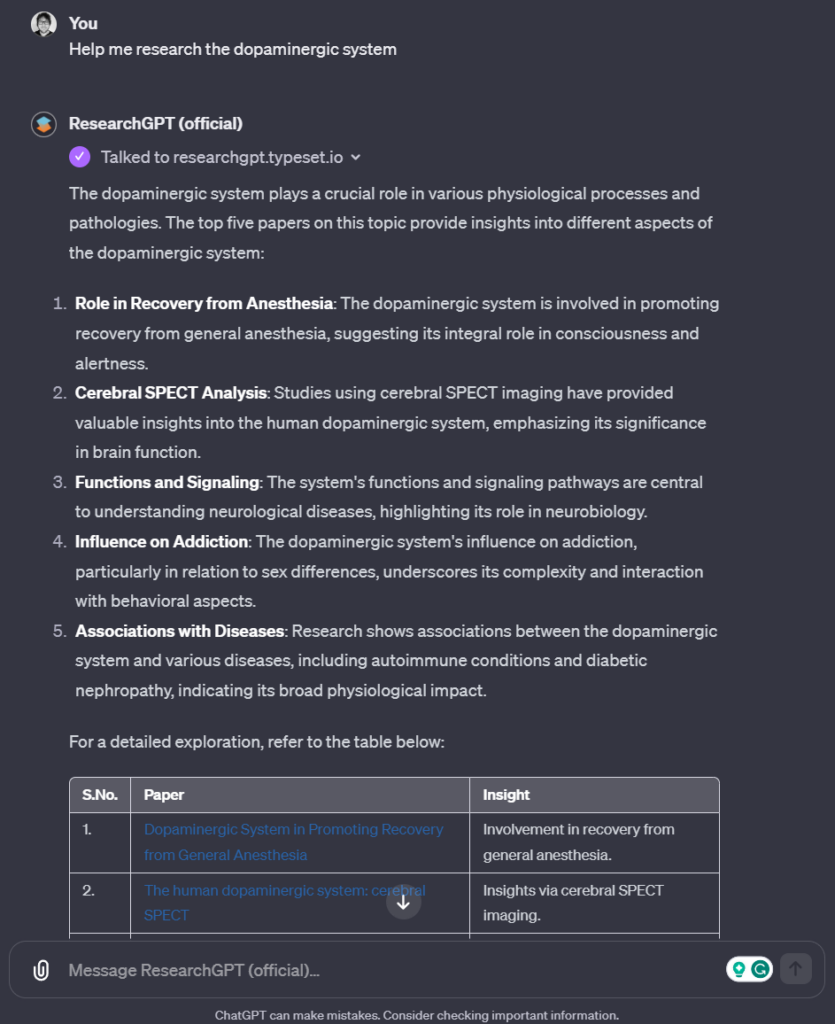
The tool benefits from the GPT-4 model, offering superior writing and analysis compared to other tools built in GPT-3.5. Plus, it benefits from GPT-4V’s image processing, meaning users can upload and analyze PDFs and images.
AI’s involvement in scientific research is a source of debate due to the potential of models to generate inaccurate results, i.e., “hallucinations.” However, ResearchGPT effectively addresses the issue by providing legitimate citations with every answer, which are traceable to a paper in the SciSpace repository.
This vastly reduces the risk of erroneous results or misinformation, positioning ResearchGPT as an effective academic assistant that maintains academic integrity.
Here’s how to access ResearchGPT:
- Visit the ResearchGPT – it will redirect you to ChatGPT.
- Sign in to ChatGPT Plus. You can’t access it without a Plus subscription.
- Interact with it similarly to ChatGPT.
What does ResearchGPT offer?
Before moving on to explore how ResearchGPT works in practice, here’s a list of its main features:
Discovery of relevant papers
ResearchGPT’s most powerful feature is searching SciSpace’s vast catalog of over 282 million papers. It’s probably the most sophisticated AI-integrated academic search engine around.
Answering questions with citations
Researchers can probe and interact with ResearchGPT on topics they’re investigating. Answers are provided with hyperlinked and properly formatted citations to substantiate information.
Uploading and exploring PDFs
Researchers can upload their own PDFs to ResearchGPT to uncover information as a platform for further research.
For example, you could upload a PDF of your school, college, or university assignment and use that as a starting point for searching and interacting with papers.
You can also upload a PDF and ask the AI to summarize methods, results, etc. It’s also excellent at critiquing literature and uncovering weaknesses or blind spots.
Research overviewed by the publisher and journal Nature found that GPT-4 could effectively emulate the peer-review process.
Literature review automation
As many might testify, conducting exhaustive literature reviews is hugely time-intensive.
ResearchGPT leverages SciSpace’s paper repository to automate much of the discovery and synthesis process and can deliver ready-formatted references ready for bibliographies.
You can map out complex topics, extracting themes and topics of interest from relevant papers.
Image-based searching
Through GPT-4’s multi-modal support, ResearchGPT matches images uploaded by users to papers containing that image or similar visual content.
You can also upload images from papers, like diagrams or infographics, and ask the chatbot to explain them.
I asked it to explain the following image:
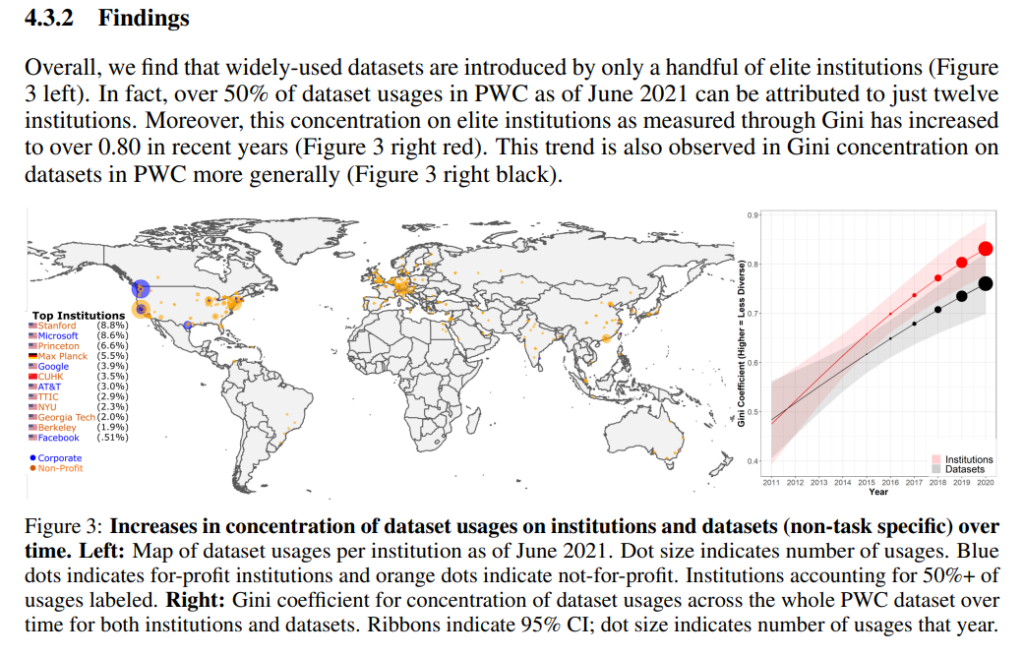
The results are impressive, as you can see below. While ChatGPT Plus users can perform this task in the normal interface, ResearchGPT connects findings to its research paper database via SciSpace.
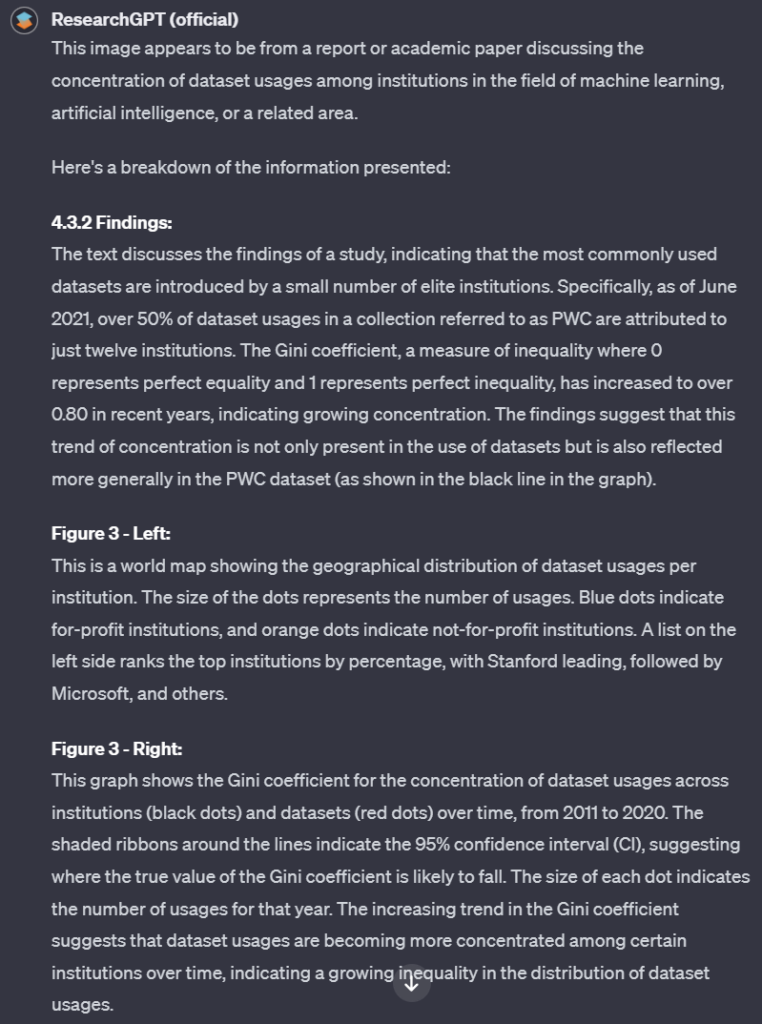
From research to drafting
ResearchGPT also assists with the drafting process. You can take your research and iteratively explore and draft content within the same interface.
This transforms the end-to-end process of using search engines to find papers – often to find they’re paywalled – probing them for information, creating the references, etc. Here’s an example:
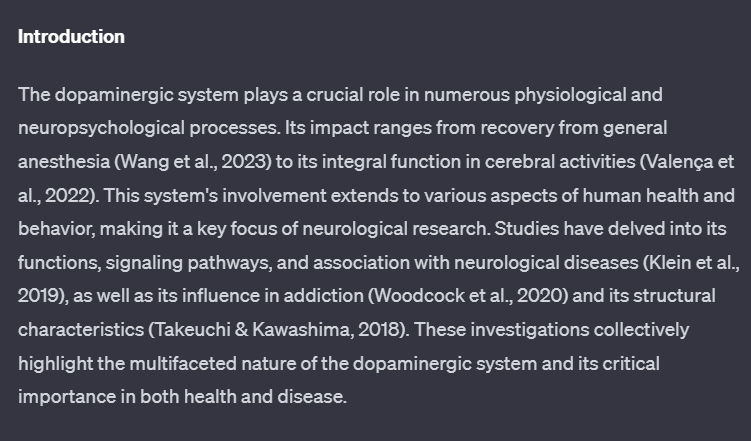
Integration with SciSpace
If you click on the links provided by ResearchGPT, they’ll take you to SciSpace – the creators of ResearchGPT. SciSpace has been around since 2017 and offers numerous tools for probing papers for information using AI.
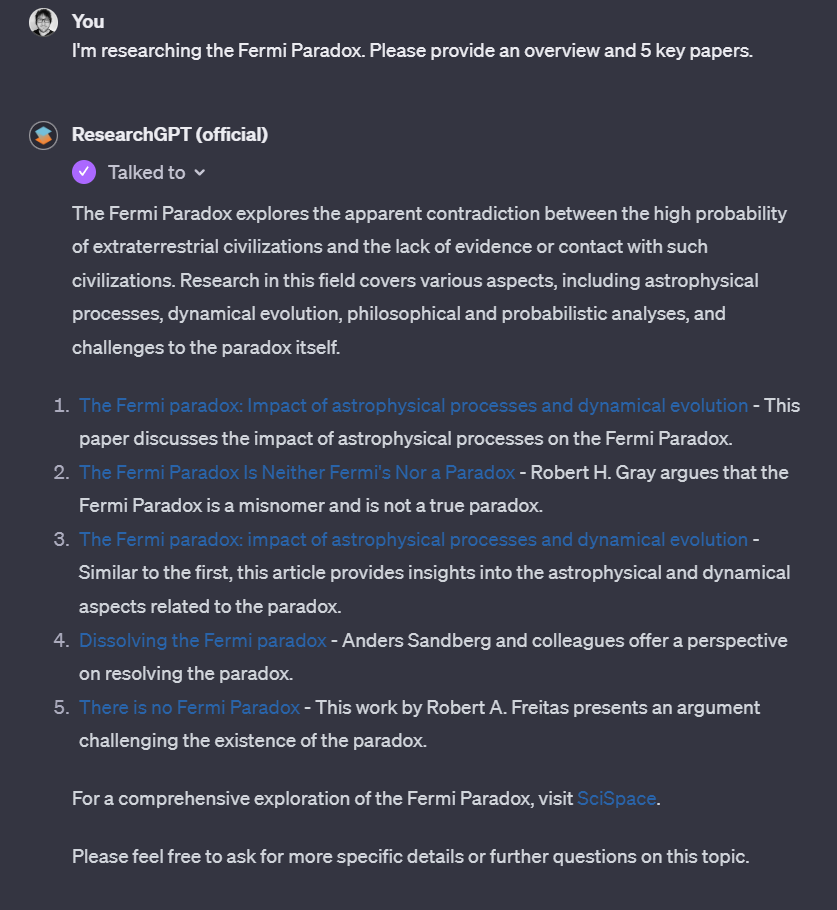
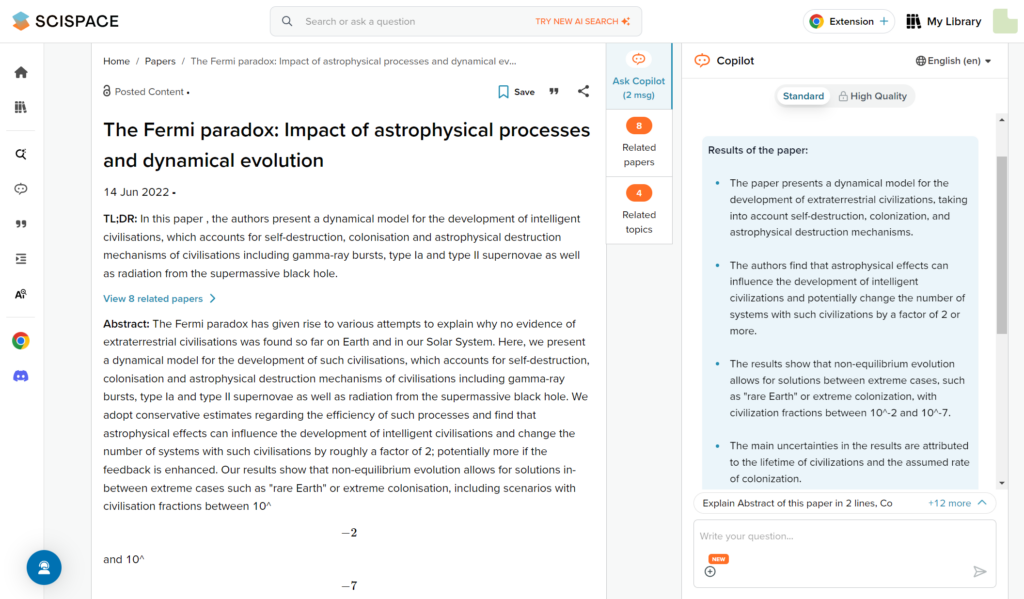
SciSpace itself was the idea of Saikiran Chandha, who knew firsthand the headaches of navigating complex formatting requirements for academic papers. After having his own work rejected for non-compliance in journal formatting, Chandha set out to help others avoid this situation.
At a hackathon in 2015, Chandha built a basic prototype that automated formatting for IEEE journal styles in MS Word. The concept gained enthusiasm from fellow researchers who had also experienced the painful process of formatting manuscripts for publication. Off the back of that, Chandha co-founded Typeset (now SciSpace) in 2016 with Shanu Kumar, aiming to expand on his initial idea.
In 2017, Typeset secured $1 million in angel investment. In 2022, Typeset rebranded as SciSpace and expanded its capabilities to help people search academic literature, analyze and understand papers, and format their papers for publication using 100,000+ templates.
It also includes a plagiarism checker, AI detector, paraphraser, citation generator, and PDF extractor.
ResearchGPT, offers a comprehensive academic assistant and journal management platform that supports the entire process of research ideation, research, writing, editing, critique, and journal submission.
Wrapping up
ResearchGPT is the ChatGPT partner for SciSpace, a comprehensive AI-integrated platform with access to some 280 million research papers.
AI is transforming the academic research process, and surveys show that most seasoned academics and researchers are positive about its impact.
ResearchGPT and SciSpace alleviate one of the key tensions here: hallucinations. Since citations are provided with direct links to papers from SciSpace, the risk of erroneous results is vastly reduced.
Of course, as always, it’s still prudent to double- and triple-check everything ResearchGPT produces.





